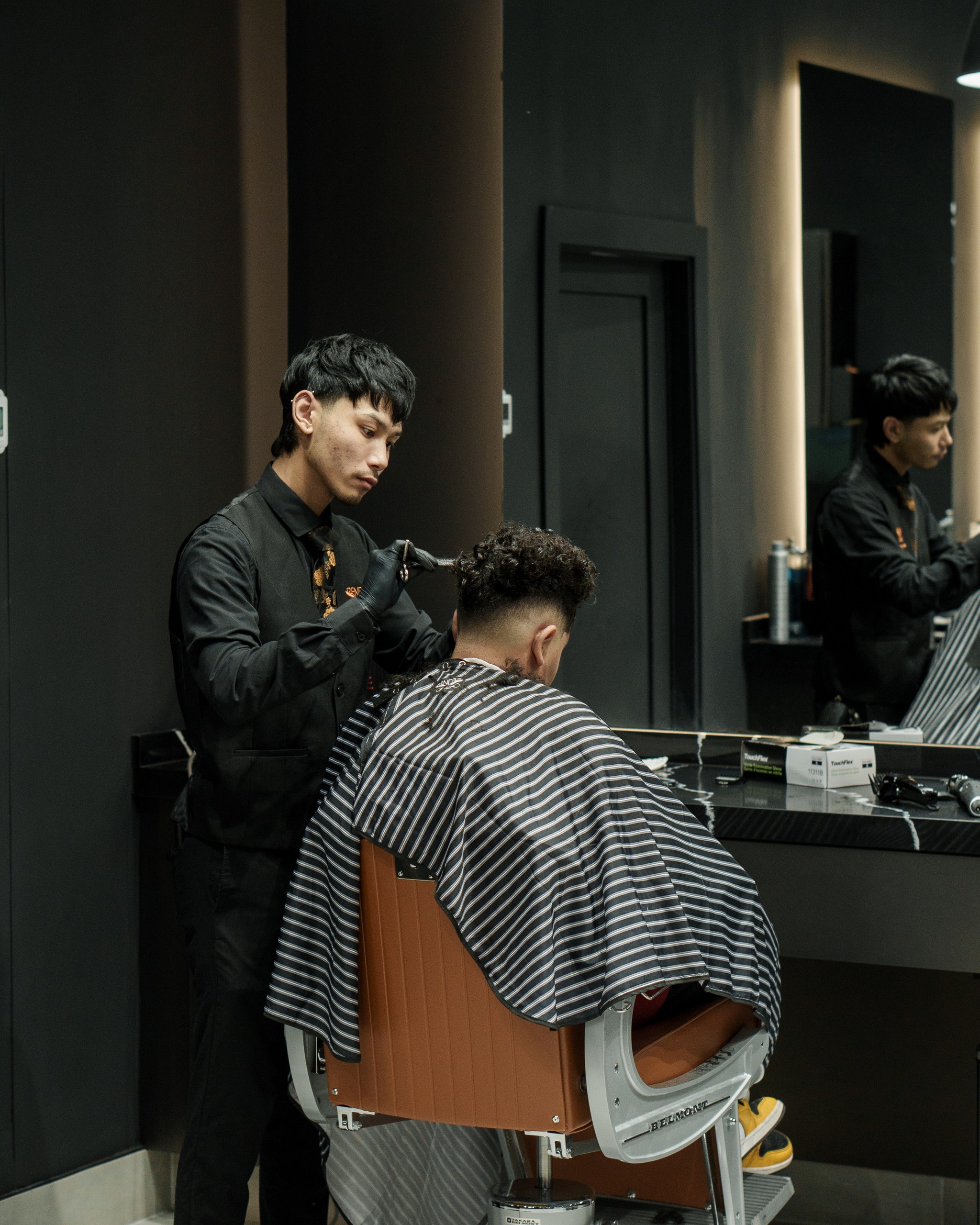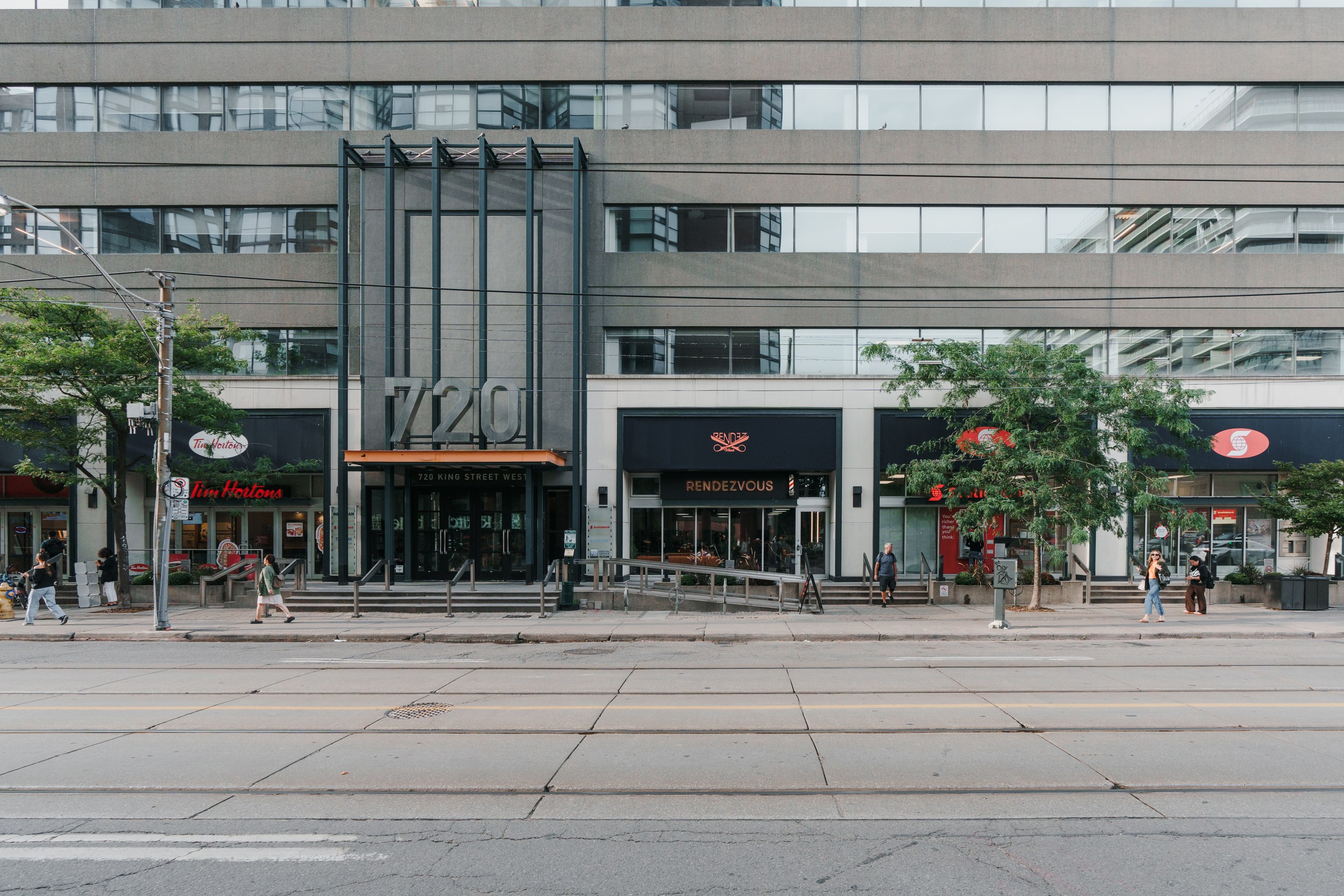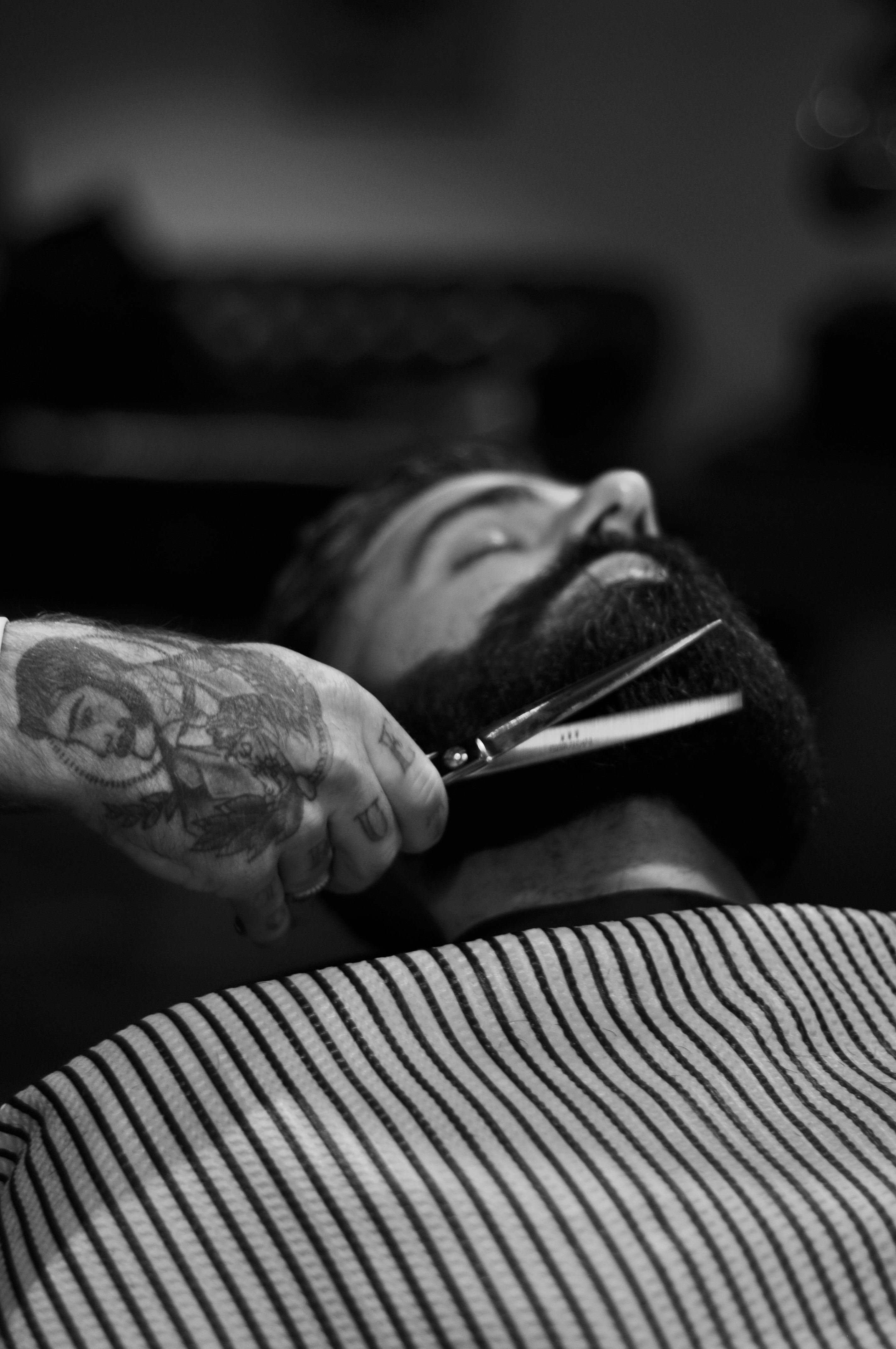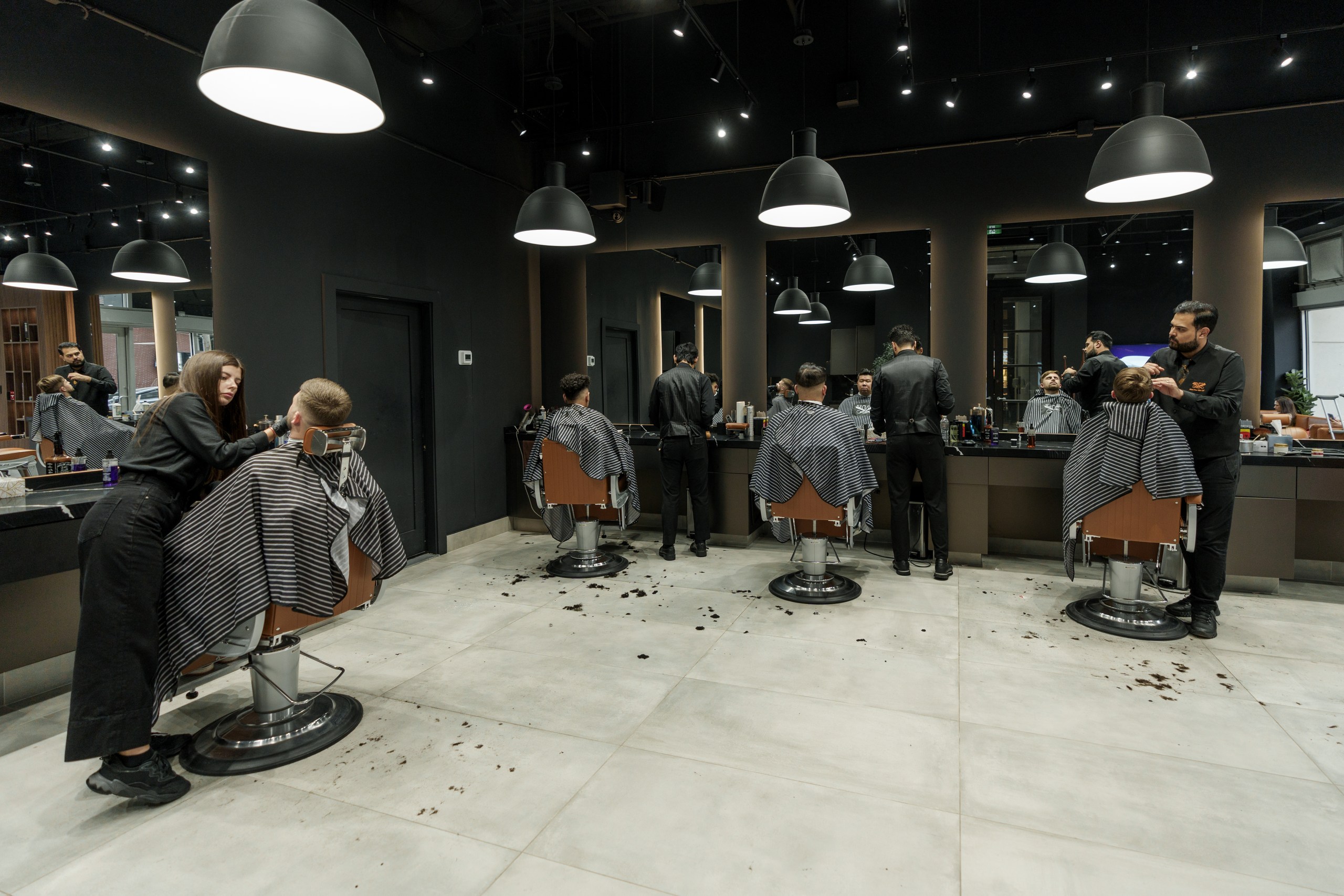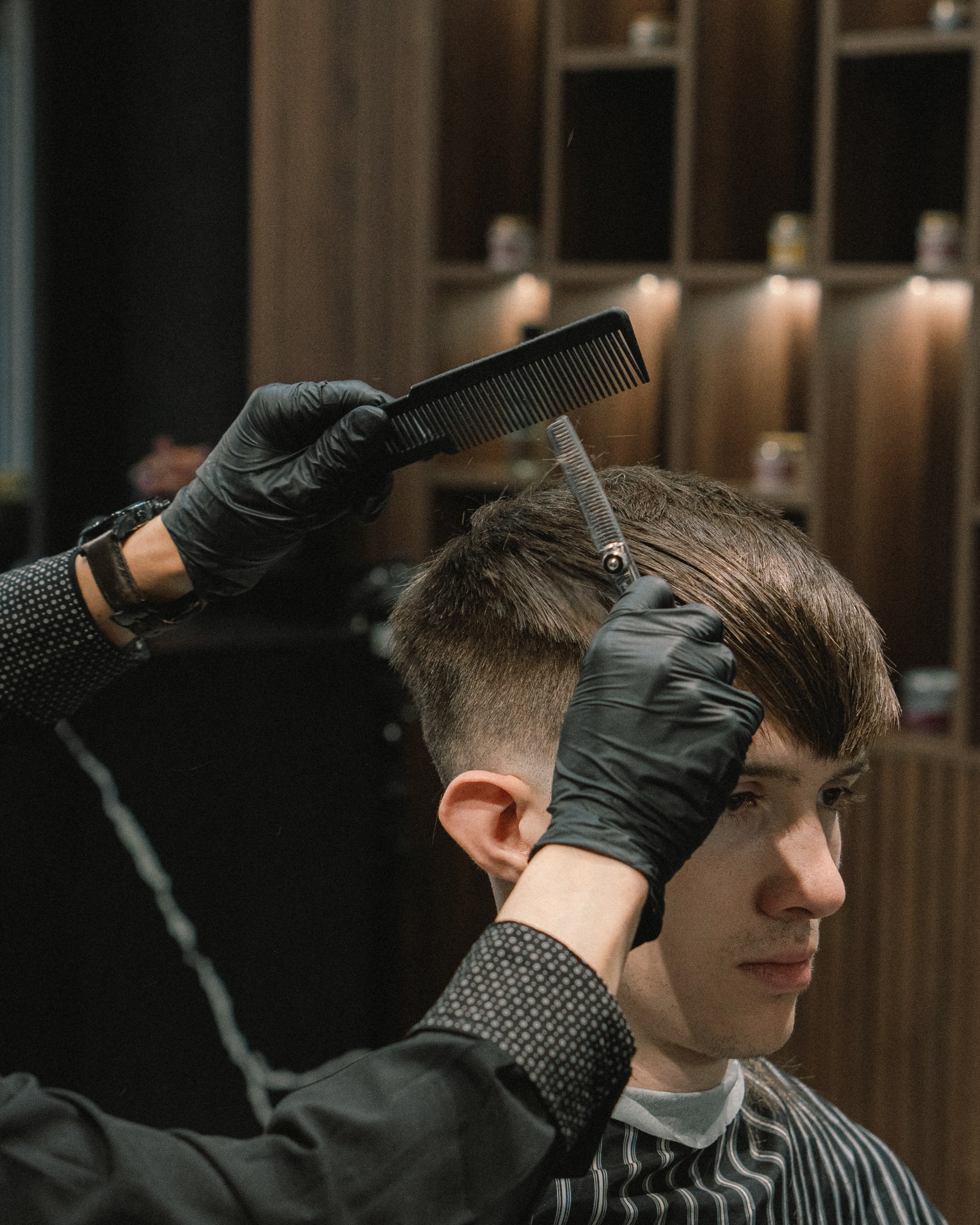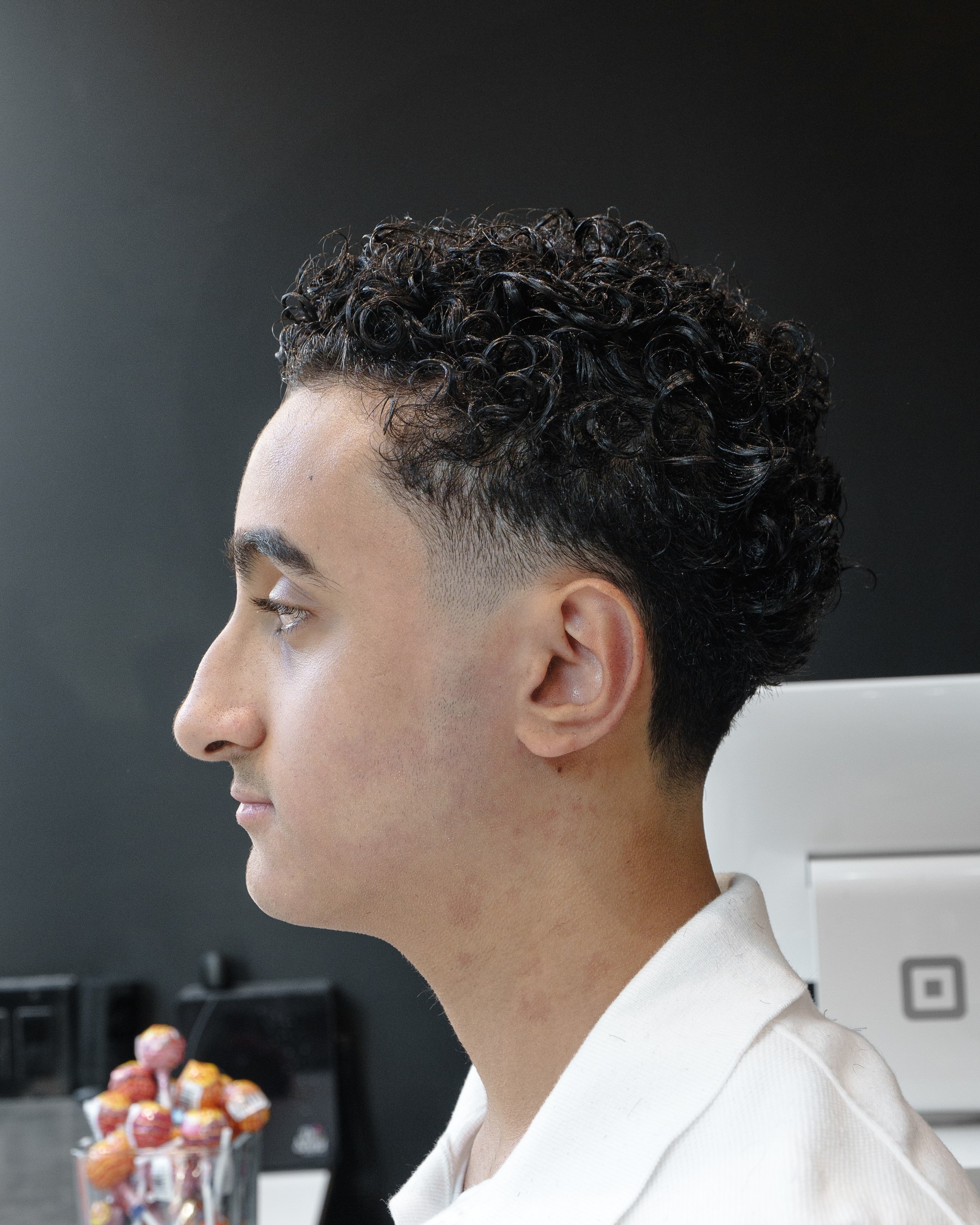Whether it’s hygiene, proper care, or the fullness and vibrancy of healthy hair, each element plays a vital role. Gaining insight into the science behind hair growth, health, and maintenance can greatly improve grooming practices and keep hair in its best condition.
From understanding the various factors that contribute to healthy hair to exploring scientifically proven maintenance strategies, this guide offers a well-rounded perspective. Discover how your barber can play a pivotal role in maintaining your grooming routine, gain knowledge on how to preserve a healthy scalp, and learn what steps to take if you start experiencing hair loss.
The Intricacies of Hair Growth
Hair is a biostructure shaped by many variables, including genetics, lifestyle, and age. The quality of one’s hair, whether thick and vibrant or thinning and dull, can serve as a reflection of overall health and well-being. By understanding the science of hair care and growth, individuals can significantly enhance their grooming routines and make more informed choices about maintaining optimal hair health.
From learning about the biological factors that influence hair condition to exploring proven methods of preservation, this guide provides a comprehensive look at effective grooming strategies. Additionally, it highlights how your barber can offer expert advice on maintaining a healthy scalp and provides insights into addressing concerns like hair thinning or loss. This deeper understanding can empower individuals to take control of their hair care regimen with confidence.
Factors Affecting Hair Health
- Genetics and Hormones: Genetic predispositions and hormonal changes significantly affect hair texture, growth rate, and longevity. For example, variations in the androgen receptor gene can make individuals more susceptible to androgenetic alopecia, a common form of hair loss (Journals of Dermatological Science, 2019).
- Dietary Influence: The role of nutrients in hair health cannot be overstated. Proteins, vitamins, and minerals are essential for keratin production, a protein that constitutes about 90% of hair. Omega-3 fatty acids, zinc, and antioxidants found in whole foods can improve hair density and diameter, as demonstrated in various nutritional studies.
- Stress and Lifestyle: Chronic stress disrupts the normal hair growth cycle, potentially leading to shedding and alopecia. Managing stress through techniques such as yoga, meditation, and regular physical activity is vital for maintaining hair health.
- Environmental Factors: External factors like UV exposure, pollution, and harsh weather conditions can damage hair, leading to protein loss and premature aging. Protective hairstyles, along with the use of hats and UV-protective hair products, are recommended to mitigate these effects.

Scientific Strategies for Hair Maintenance
With numerous factors, including illnesses and diseases, contributing to hair loss, the most effective approach is to adopt scientifically proven strategies for prevention and treatment. By following these evidence-based practices, individuals can help prevent hair deterioration and address hair loss more effectively.
General Everyday Practices
- Proper Nutrition: Incorporating a balanced diet rich in vitamins, minerals, and proteins supports hair growth and repair. Foods rich in vitamin C aid in collagen production, while iron helps in oxygen delivery to hair follicle cells, promoting growth and strength.
- Hydration and Conditioning: Keeping hair hydrated with appropriate moisturizers and conditioners is crucial, especially for those with dry or brittle hair. Deep conditioning treatments can replenish hair's natural moisture, improving elasticity and preventing breakage.
- Healthy Diet: A balanced diet rich in vitamins and minerals, particularly biotin, zinc, iron, and omega-3 fatty acids, supports hair health and growth.
- Proper Scalp Care: Maintaining a clean and well-nourished scalp helps promote healthy hair growth. Regular cleansing and exfoliation remove excess oil, dirt, and dead skin cells that can block follicles.
- Minimizing Heat and Chemical Damage: Reducing the use of heat styling tools, harsh dyes, and chemical treatments prevents hair weakening and breakage.
- Stress Management: Chronic stress is a known contributor to hair loss, and practicing stress-reduction techniques like meditation, yoga, or regular physical activity can help.
- Adequate Sleep: Restful sleep is essential for overall health, including the regeneration and repair of hair cells.
- Avoiding Tight Hairstyles: Reducing the strain from tight hairstyles like ponytails, braids, or buns helps prevent traction alopecia, a form of hair loss due to tension.
- Regular Trimming: Regular hair trims can prevent split ends and hair breakage, contributing to overall healthier-looking hair.

Advanced Hair Care and Treatment Options
- Medical Treatments: Options like minoxidil (Rogaine) and finasteride (Propecia) are FDA-approved treatments for hair loss and can help slow or reverse hair thinning.
- Laser Therapy: Low-level laser therapy (LLLT) has been shown to stimulate hair follicles and improve hair density.
- Hormonal Balance: Consulting with a healthcare professional to manage conditions like thyroid disorders or hormonal imbalances can help mitigate hair loss.
- Natural Supplements: Products like biotin, saw palmetto, and marine collagen supplements are often used to support hair health and potentially slow hair loss.
- Scalp Micropigmentation (SMP): A cosmetic treatment where pigments are tattooed on the scalp to create the appearance of fuller hair, especially in balding areas.
A Barber’s Role In Your Hair’s Well-Being
Beyond the attention dedicated to the well-being of your hair and scalp, your barber plays a significant part in keeping you looking your best. They provide expert advice, tailoring their services to your unique condition with the right styles, products, and recommendations.

Professional Consultation
Your Rendezvous barber possesses a deep understanding of your hair's unique characteristics, especially if you are a regular client. Given this familiarity, it is crucial to leverage their expertise to achieve impeccable styling and maintain optimal hair health.
While barbers maintain professional decorum and may not volunteer advice unless solicited, they are well-prepared to provide valuable insights and recommendations. We encourage you to actively seek their professional guidance to enhance your grooming experience.
Custom Requests
At Rendezvous, each client's unique health and well-being are at the forefront of the services provided. Clients are encouraged to openly discuss their specific needs and preferences regarding hair health and styling. Rendezvous barbers are dedicated to accommodating each request with precision and care. They place great importance on understanding and fulfilling individual health-centric needs, ensuring that each client's experience is not only personalized but also nurturing for their hair and scalp health.
Build a Personalized Profile
At Rendezvous, meeting your best self is viewed as an ongoing commitment rather than a one-time service. Clients are encouraged to develop a lasting relationship with their barber, who diligently tracks the progress of their hair health and styling preferences over time.
By maintaining comprehensive profiles for each client, Rendezvous barbers can monitor changes, celebrate improvements, and adjust treatments as necessary to ensure optimal hair health and satisfaction. This proactive approach allows each visit to be tailored specifically to the client's needs, making every appointment a strategic step forward in their personal journey to meet their best self.
Conclusion: Cultivating Lifelong Hair Health Through Expert Care
Finally, every Rendezvous team member understands that true hair health transcends styling; it’s about cultivating enduring health and vitality for each client's hair. With a commitment to becoming your exclusive hair care expert, Rendezvous dedicates itself to maintaining and enhancing the natural beauty and wellness of your hair, ensuring it remains vibrant and healthy


